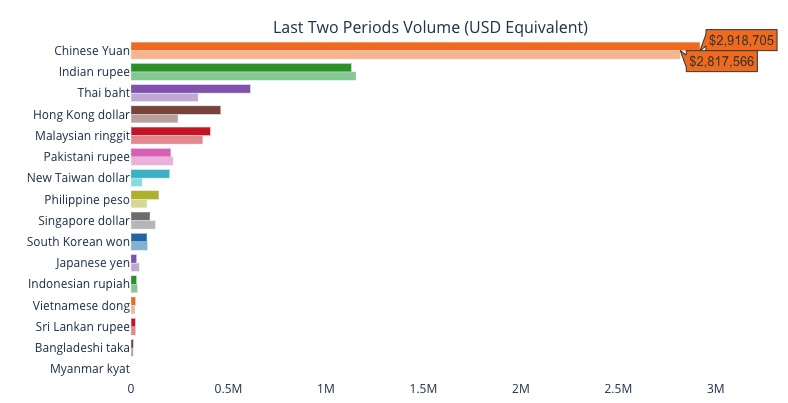Economic news from China this past Friday was, in a word, “tepid”. For the first time in three decades, Chinese government officials are admitting that economic growth may decline below 6%. Foreign investment is already at 4.5% levels, suggesting there is not much in the pipeline that could boost data any time soon. The lagging trade negotiations with the U.S. are having an impact, but individuals with access to Bitcoin exchanges across the region have been preparing for the worst.
Capital flight in search of a “safe haven” has begun in earnest, especially in places like China, India, Thailand, Hong Kong, and Malaysia. Fear of recession is the reason cited for this sudden movement of capital. As reported by Crypto Briefing:
Economic uncertainty in the world’s second-largest economy may explain a sudden surge in the amount of Bitcoin (BTC) purchased with Chinese Yuan (CNY) as local traders place value into something believed to be uncorrelated to the world economy, and therefore potentially recession-proof.
ID Theory, a cryptocurrency investment firm, has aggregated peer-to-peer data from one local trading site in Asia, LocalBitcoins, and discovered a severe upturn in transactions involving the Chinese Yuan (CNY), far more so than any of the other more prevalent cross-border currencies. Over the past two weeks, these increases are depicted in the chart presented below, courtesy of Crypto Briefing:
The top “bars” for each country represent activity for last week; the lower, for the week prior. The amounts are USD equivalents of direct deposits into Bitcoin on this single exchange. Thailand had the largest increase week-to-week, but its total amount is barely 20% of the CNY traffic. One would expect the CNY figure to be the largest, except for the fact that there is a “ban” in China related to these types of transaction. Once it was learned that the People’s Bank of China (PBOC) had injected $28 billion into the local economy to provide additional liquidity and dilute the fiat currency, it is no surprise that wealthy Chinese with OTC connections decided to convert CNY to BTC.
The global economy is gradually slowing. The days of double-digit growth in the Middle Kingdom are long past. The news Friday was that Q3 growth came in less than 6%, but, despite the government’s statements that better times lie ahead, data from other regions belie this outlook. The central bank in Germany has warned of a recession. The IMF has warned that debt loads in China and the U.S. may be at unsustainable levels, if and when growth takes a dive. The export trade is the victim at the moment.
Although fund managers and billionaires have disputed the notion, a subset of investors still believes that Bitcoin can provide a safe harbor in the event of an economic storm, in some ways equivalent to Gold in that regard. Bitcoin has been around for a decade, but there is still no evidence to quantify how it might react during a true economic downturn. There are a few analysts, most notably Tom Lee, that purport that Bitcoin movements, although sometimes delayed, are correlated with the swings of the S&P 500 index, our best proxy for gauging the health of the global economy. The jury is out on this one.
One thing is certain, however, and that is, if trade wars and negotiations across the globe continue to drag on, the global economy will continue to decline. Asia has tended in the past to weather these storms, but it may soon be drawn into troubled waters, as well. In the meantime, there will be investors that choose to stockpile wealth in Bitcoin, as recession fears mount and banks dilute fiat currencies. These capital movements, however, also tend to reverse at some point in the future, a fact to keep in mind.

